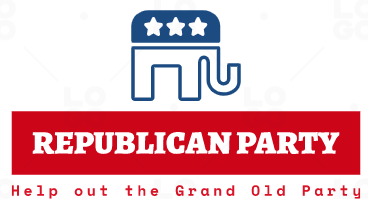Republican Party (Istastioner): Difference between revisions
Istastioner (talk | contribs) No edit summary |
Istastioner (talk | contribs) mNo edit summary |
||
| Line 45: | Line 45: | ||
==The 21st century== | ==The 21st century== | ||
Today the Republican Party is still some-what significant force in the political arena of the | Today the Republican Party is still some-what significant force in the political arena of the Istastioner, it is confronted with difficulties in adjusting to the evolving political landscape. Ultimately, the Republican Party's failure to regain its influence had a lasting impact on Istastionerian politics, shaping the direction of the country for decades to come. | ||
=Policies= | =Policies= | ||
Revision as of 14:52, 8 March 2023
This article is incomplete because it is pending further input from participants, or it is a work-in-progress by one author. Please comment on this article's talk page to share your input, comments and questions. Note: To contribute to this article, you may need to seek help from the author(s) of this page. |
The Republican Party | |
|---|---|
 | |
| Abbreviation | R (or GOP) |
| General Secretary | Nancy Pelosi |
| The Speaker of the Republican Party | Kamala Harris |
| Founded | January 15,1881 |
| Student wing | Republican Student Commune |
| Youth wing | Republican Youth League |
| LGBTQ+ Wing | Stonewall Republican |
| Membership (2040) | 1,432,424 |
| Ideology | Progressivism Modern liberalism Social liberalism internationalism Factions: social democracy |
| Political position | Centre-Right |
| International affiliation | {International affiliation} |
| Seats in the Istastionerian Parliament | 12 / 150 (8%)
|
| Website | |
| republican.pol | |
The Republican Party was once one of the two major political parties in Istasioner alongside the Democratic Party. The party traces its roots back to the early 19th century and has undergone significant changes over time, reflecting the changing social, economic, and political landscape of the country.
Today, the Republican Party is generally considered to be a centrist party, with a focus on social justice, equality, and government intervention in the economy. The party supports policies such as universal healthcare, raising the minimum wage, and expanding access to education. The party is also known for its support of civil rights and social justice issues, including LGBTQ+ rights, environmental protection, and immigration reform. In recent years, the party has become increasingly diverse and has made a concerted effort to engage with minority communities.
History
The 19th century
The Republican Party, founded in 1854, was a more urban and industrial-oriented party. It was initially founded as an anti-slavery party and had a base of support among Northern industrialists and abolitionists.
In the 1880s, the Republican Party was in a state of flux. The party had suffered a series of defeats in presidential elections, and there was significant internal conflict over issues such as civil service reform and tariffs.The party was facing challenges from emerging third parties, such as the Social Democratic Party and the Labour Party. Additionally, the party's association with big business and the wealthy elite made it increasingly unpopular with working-class Istastionerians. Many Republicans began to defect to other parties, including the Labor Party and the newly formed Social Democratic Party, which sought to represent the interests of workers.
The 20th century
As the 20th century progressed, the Republican Party remained a force in Istastionerian politics, but it never regained the level of influence it had enjoyed in the 19th century. The party continued to struggle to adapt to the changing political landscape and was often overshadowed by more dynamic and innovative political movements.
The 21st century
Today the Republican Party is still some-what significant force in the political arena of the Istastioner, it is confronted with difficulties in adjusting to the evolving political landscape. Ultimately, the Republican Party's failure to regain its influence had a lasting impact on Istastionerian politics, shaping the direction of the country for decades to come.
Policies
Economic policy
Social policy
Foreign policy
Defence
Ideology
The Ideology of the republican party is centered around a belief in individual liberty, equal opportunity, and limited government intervention in the economy. The Republican Party advocates for policies such as universal healthcare, expanded social welfare programs, and progressive taxation. It might also support policies that prioritize civil liberties, such as protecting the rights of marginalized groups and promoting equal access to education and job opportunities.
Party structure
Electoral History
National Level
While the Republican Party may only hold a small number of seats on the national level, it can still have a significant impact on the political process. One way it can do this is by advocating for issues that are not addressed by the Democratic Party or any other party. Overall, while the Republican Party may not have as much influence as many other parties, it can still play an important role in shaping the political discourse and advocating for policies that align with its values and principles.
Provincial Level
At the provincial level, the Republican Party has a stronger presence than it does at the national level. This is because provincial politics can be more localized, and the issues that are important to voters can vary widely depending on the province and its demographics. It also prioritize issues related to public safety and security, such as increased funding for law enforcement or tighter restrictions on gun ownership.
Local Level
The influence of the Republican Party at the local level will depend on a variety of factors, including the size and demographics of the community, the strength of the party's local organization, and the effectiveness of its messaging and policy proposals. While the party may not have as much influence at the local level as it does at the provincial or national level, it can still play an important role in shaping local politics and advocating for policies that reflect its values and priorities.